- Home
- Alice Hoffman
Practical Magic
Practical Magic Read online
Table of Contents
Title Page
Copyright Page
Dedication
SUPERSTITION
PREMONITIONS
CLAIRVOYANCE
LEVITATION
“Hoffman’s best ... readers will relish this magical tale.”
—Publishers Weekly
“A sweet, sweet story that like the best fairy tales says more than at first it seems to.”—New York Daily News
“[Hoffman] has proved once again her potency as a storyteller, combining the mundane with the fantastic in a totally engaging way.”—Boston Sunday Herald
“Whimsical ... Hoffman’s touch is so light, her writing so luminous.” —The Orlando Sentinel
“Charming.”—Library Journal
“Witches and ghosts, spells and sleight-of-hand weave a fanciful atmosphere in Alice Hoffman’s tender comedy about clairvoyance, spells, and family ties.” —The Miami Herald
“[A] delicious fantasy of witchcraft and love in a world where gardens smell of lemon verbena and happy endings are possible.”
—Cosmopolitan
“A cosmic romance leavened with just the right touch of pragmatism and humor.” —Booklist
“Hoffman’s writing has plenty of power. Her best sentences are like incantations—they won’t let you get away.”
—Kirkus Reviews
“Perfect.”—Dayton Daily News
“Engaging.”—Glamour
“Whimsical.”—Los Angeles Times
Praise for the previous works of Alice Hoffman:
BLUE DIARY
“A page-turner ... hard to put down ... even harder to forget.”
—St. Louis Post-Dispatch
“Investigate[s] the themes of devotion, betrayal, guilt, and forgiveness in trenchantly effective ways.”—Publishers Weekly (starred review)
“A delectable writer ... God bless her.”—New York Daily News
ILLUMINATION NIGHT
“Daringly mixing comedy with tragedy ... [Hoffman] has created a narrative that somehow makes myth out of the sticky complexities of contemporary marriage ... Her characters are branded onto one’s memory.”—The New York Times Book Review
THE RIVER KING
“Flows as swiftly and limpidly as the Haddan River, the town’s mystical waterway ... As ever, Hoffman mixes myth, magic, and reality, addressing issues of town and gown, enchanting her readers with a many-layered morality tale, and proving herself once again an inventive author with a distinctive touch.”—Publishers Weekly (starred review)
HERE ON EARTH
“[Hoffman] plumbs the interior lives of, among others, a drunken recluse, a heartsick teenage boy, an angry daughter, a near madman, a cuckolded husband, and three wounded women with such modesty and skill that she seems to witness rather than invent their lives.”
—Entertainment Weekly
ANGEL LANDING
“A good, old-fashioned love story ... Alice Hoffman’s writing at its precise and heartbreaking best.”—The Washington Post Book World
LOCAL GIRLS
“She is one of the best writers we have today—insightful, funny, intelligent, with a distinctive voice ... [Local Girls] does a lot to show that Hoffman is an established artist at her peak.”
—The Cleveland Plain Dealer
SECOND NATURE
“Suspenseful ... a dark, romantic meditation on what it means to be human.”—The New Yorker
PROPERTY OF
“An unmistakably gifted work ... Alice Hoffman flares with talent.”
—Kirkus Reviews
TURTLE MOON
“Hard to put down ... full of characters who take hold of your heart.”—The San Francisco Examiner
FORTUNE’S DAUGHTER
“[An] intimate, lovely novel, most of whose concerns swirl about the pain and joys of motherhood.”—People
Praise for Alice Hoffman:
“Hoffman seems certain to join such writers as Anne Tyler and Mary Gordon ... a major novelist.”—Newsweek
“One of the brightest and most imaginative of contemporary writers.”
—The Sacramento Bee
“Her novels are as fluid and graceful as dreams.”
—The San Diego Union-Tribune
“A reader is in good hands with Alice Hoffman, able to count on many pleasures.”—Jane Smiley, USA Today
“Alice Hoffman is a real writer who pleasures us as she teaches, distracts us from real life as she illuminates it.”—Judith Rossner
“With her glorious prose and extraordinary eye ... Alice Hoffman seems to know what it means to be a human being.”
—Susan Isaacs, Newsday
Berkley Books by Alice Hoffman
PROPERTY OF
THE DROWNING SEASON
ANGEL LANDING
WHITE HORSES
FORTUNE’S DAUGHTER
ILLUMINATION NIGHT
AT RISK
SEVENTH HEAVEN
TURTLE MOON
SECOND NATURE
PRACTICAL MAGIC
HERE ON EARTH
LOCAL GIRLS
THE RIVER KING
BLUE DIARY
For Children
FIREFLIES
HORSEFLY
AQUAMARINE
INDIGO
THE BERKLEY PUBLISHING GROUP
Pablisbed by the Penguin Group
Penguin Group (USA) Inc.
375 Hudson Street, New York, New York 10014, USA
Penguin Group (Canada), 10 Alcom Avenue, Toronto, Ontario M4V 3B2, Canada
(a division of Pearson Penguin Canada Inc.)
Penguin Books Ltd., 80 Strand, London WC2R ORL, England
Penguin Group Ireland, 25 St. Stephen’s Green, Dublin 2, Ireland (a division of Penguin Books Ltd.)
Penguin Group (Australia), 250 Camberwell Road, Camberwell, Victoria 3124, Australia
(a division of Pearson Australia Group Pty. Ltd.)
Penguin Books India Pvt. Ltd., 11 Community Centre, Panchsheel Park, New Delhi—110 017, India
Penguin Group (NZ), cnr. Airborne and Rosedale Roads, Albany, Auckland 1310, New Zealand
(a division of Pearson New Zealand Ltd.)
Penguin Books (South Africa) (Pty.) Ltd., 24 Sturdee Avenue, Rosebank, Johannesburg 2196,
South Africa
Penguin Books Ltd., Registered Offices: 80 Strand, London WC2R ORL, England
This is a work of fiction. Names, characters, places, and incidents either are the product of the author’s imagination or are used fictitiously, and any resemblance to actual persons, living or dead, business establishments, events, or locales is entirely coincidental.
Copyright © 1995 by Alice Hoffman.
All rights reserved.
No part of this book may be reproduced, scanned, or distributed in any printed or electronic form without permission. Please do not participate in or encourage piracy of copyrighted materials in violation of the author’s rights. Purchase only authorized editions. BERKLEY is a registered trademark of Penguin Group (USA) Inc. The “B” design is a trademark belonging to Penguin Group (USA) Inc.
eISBN : 978-1-440-67375-7
Hoffman, Alice.
Practical magic / by Alice Hoffman.
p. cm.
eISBN : 978-1-440-67375-7
1. Title.
PS3558.03447P-47013 CIP
813’.54—dc20
PLEASE VISIT THE AUTHOR’S WEBSITE AT
www.alicehoffman.com
http://us.penguingroup.com
For every evil under the sun,
There is a remedy, or there is none.
If there be one, seek till you find it;
If there be none, never mind it.
MOTHER GOOSE
/>
SUPERSTITION
FOR more than two hundred years, the Owens women have been blamed for everything that has gone wrong in town. If a damp spring arrived, if cows in the pasture gave milk that was runny with blood, if a colt died of colic or a baby was born with a red birthmark stamped onto his cheek, everyone believed that fate must have been twisted, at least a little, by those women over on Magnolia Street. It didn’t matter what the problem was—lightning, or locusts, or a death by drowning. It didn’t matter if the situation could be explained by logic, or science, or plain bad luck. As soon as there was a hint of trouble or the slightest misfortune, people began pointing their fingers and placing blame. Before long they’d convinced themselves that it wasn’t safe to walk past the Owens house after dark, and only the most foolish neighbors would dare to peer over the black wrought-iron fence that circled the yard like a snake.
Inside the house there were no clocks and no mirrors and three locks on each and every door. Mice lived under the floorboards and in the walls and often could be found in the dresser drawers, where they ate the embroidered tablecloths, as well as the lacy edges of the linen placemats. Fifteen different sorts of wood had been used for the window seats and the mantels, including golden oak, silver ash, and a peculiarly fragrant cherrywood that gave off the scent of ripe fruit even in the dead of winter, when every tree outside was nothing more than a leafless black stick. No matter how dusty the rest of the house might be, none of the woodwork ever needed polishing. If you squinted, you could see your reflection right there in the wainscoting in the dining room or the banister you held on to as you ran up the stairs. It was dark in every room, even at noon, and cool all through the heat of July. Anyone who dared to stand on the porch, where the ivy grew wild, could try for hours to look through the windows and never see a thing. It was the same looking out; the green-tinted window glass was so old and so thick that everything on the other side seemed like a dream, including the sky and the trees.
The little girls who lived up in the attic were sisters, only thirteen months apart in age. They were never told to go to bed before midnight or reminded to brush their teeth. No one cared if their clothes were wrinkled or if they spit on the street. All the while these little girls were growing up, they were allowed to sleep with their shoes on and draw funny faces on their bedroom walls with black crayons. They could drink cold Dr Peppers for breakfast, if that was what they craved, or eat marshmallow pies for dinner. They could climb onto the roof and sit perched on the slate peak, leaning back as far as possible, in order to spy the first star. There they would stay on windy March nights or humid August evenings, whispering, arguing over whether it was feasible for even the smallest wish to ever come true.
The girls were being raised by their aunts, who, as much as they might have wanted to, simply couldn’t turn their nieces away. The children, after all, were orphans whose careless parents were so much in love they failed to notice smoke emanating from the walls of the bungalow where they’d gone to enjoy a second honeymoon, after leaving the girls home with a baby-sitter. No wonder the sisters always shared a bed during storms; they were both terrified of thunder and could never speak above a whisper once the sky began to rumble. When they did finally doze off, their arms wrapped around each other, they often had the exact same dreams. There were times when they could complete each other’s sentences; certainly each could close her eyes and guess what the other most desired for dessert on any given day.
But in spite of their closeness, the two sisters were entirely different in appearance and temperament. Aside from the beautiful gray eyes the Owens women were known for, no one would have had reason to guess the sisters were related. Gillian was fair and blond, while Sally’s hair was as black as the pelts of the ill-mannered cats the aunts allowed to skulk through the garden and claw at the draperies in the parlor. Gillian was lazy and liked to sleep past noon. She saved up her allowance money, then paid Sally to do her math homework and iron her party dresses. She drank bottles of Yoo-Hoo and ate goopy Hershey’s bars while sprawled out on the cool basement floor, content to watch as Sally dusted the metal shelves where the aunts kept pickles and preserves. Gillian’s favorite thing in the world to do was to lie on the velvet-cushioned window seat, up on the landing, where the drapes were made of damask and a portrait of Maria Owens, who had built the house so long ago, collected dust in a corner. That’s where she could be found on summer afternoons, so relaxed and languid that moths would land on her, mistaking her for a cushion, and proceed to make tiny holes in her T-shirts and jeans.
Sally, three hundred ninety-seven days older than her sister, was as conscientious as Gillian was idle. She never believed in anything that could not be proven with facts and figures. When Gillian pointed to a shooting star, it was Sally who reminded her that what was falling to earth was only an old rock, heated by its descent through the atmosphere. Sally was a take-charge sort of person from the start; she didn’t like confusion and mess, both of which filled the aunts’ old house on Magnolia Street from attic to cellar.
From the time she was in third grade, and Gillian in second, Sally was the one who cooked healthy dinners of meat loaf and fresh green beans and barley soup, using recipes from a copy of Joy of Cooking she’d managed to smuggle into the house. She fixed their lunchboxes each morning, packing up turkey-and-tomato sandwiches on whole-wheat bread, adding carrot sticks and iced oatmeal cookies, all of which Gillian tossed in the trash the instant after Sally had deposited her in her classroom, since she preferred the sloppy joes and brownies sold in the school cafeteria, and she often had swiped enough quarters and dimes from the aunts’ coat pockets to buy herself whatever she liked.
Night and Day, the aunts called them, and although neither girl laughed at this little joke or found it amusing in the least, they recognized the truth in it, and were able to understand, earlier than most sisters, that the moon is always jealous of the heat of the day, just as the sun always longs for something dark and deep. They kept each other’s secrets well; they crossed their hearts and hoped to die if they should ever slip and tell, even if the secret was only a cat’s tail pulled or some foxglove stolen from the aunts’ garden.
The sisters might have sniped at each other because of their differences, they might have grown nasty, then grown apart, if they’d been able to have any friends, but the other children in town avoided them. No one would dare to play with the sisters, and most girls and boys crossed their fingers when Sally and Gillian drew near, as if that sort of thing was any protection. The bravest and wildest boys followed the sisters to school, at just the right distance behind, which allowed them to turn and run if need be. These boys liked to pitch winter apples or stones at the girls, but even the best athletes, the ones who were the stars of their Little League teams, could never get a hit when they took aim at the Owens girls. Every stone, each apple, always landed at the sisters’ feet.
For Sally and Gillian the days were filled with little mortifications: No child would use a pencil or a crayon directly after it had been touched by an Owens girl. No one would sit next to them in the cafeteria or during assemblies, and some girls actually shrieked when they wandered into the girls’ room, to pee or gossip or brush their hair, and found they’d stumbled upon one of the sisters. Sally and Gillian were never chosen for teams during sports, even though Gillian was the fastest runner in town and could hit a baseball over the roof of the school, onto Endicott Street. They were never invited to parties or Girl Scout meetings, or asked to join in and play hopscotch or climb a tree.
“Fuck them all,” Gillian would say, her beautiful little nose in the air as the boys made spooky goblin noises when the sisters passed them in the hallways at school, on the way to music or art. “Let them eat dirt. You wait and see. One day they’ll beg us to invite them home, and we’ll laugh in their faces.”
Sometimes, when she was feeling particularly nasty, Gillian would suddenly turn and shout “Boo,” and some boy always pissed in his pants and was f
ar more humiliated than Gillian had ever been. But Sally didn’t have the heart to fight back. She wore dark clothes and tried not to be noticed. She pretended she wasn’t smart and never raised her hand in class. She disguised her own nature so well that after a while she grew uncertain of her own abilities. By then, she was as quiet as a mouse. When she opened her mouth in the classroom she could only squeak out wrong answers; in time she made sure to sit in the back of the room, and to keep her mouth firmly shut.
Still they would not let her be. Someone put an open ant farm in her locker when Sally was in fourth grade, so that for weeks she found squashed ants between the pages of her books. In fifth grade a gang of boys left a dead mouse in her desk. One of the cruelest children had glued a nametag to the mouse’s back. Sali had been scrawled in crude letters, but Sally took not the slightest pleasure in the misspelling of her name. She had cried over the little curled-up body, with its tiny whiskers and perfect paws, but when her teacher had asked what. was wrong, she’d only shrugged, as though she had lost the power of speech.

 The Story Sisters
The Story Sisters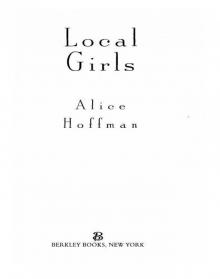 Local Girls
Local Girls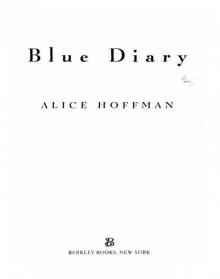 Blue Diary
Blue Diary The River King
The River King Here on Earth
Here on Earth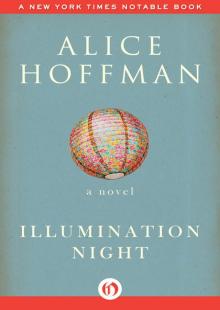 Illumination Night: A Novel
Illumination Night: A Novel The Marriage of Opposites
The Marriage of Opposites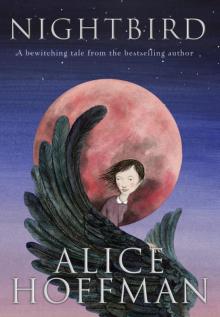 Nightbird
Nightbird Incantation
Incantation Skylight Confessions
Skylight Confessions The Ice Queen
The Ice Queen Second Nature
Second Nature Fortune's Daughter: A Novel
Fortune's Daughter: A Novel Seventh Heaven
Seventh Heaven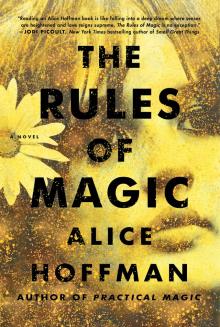 The Rules of Magic
The Rules of Magic The Red Garden
The Red Garden The Third Angel
The Third Angel White Horses
White Horses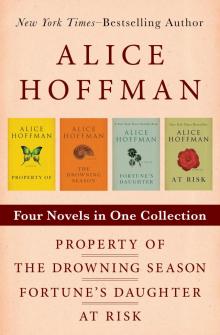 Property of / the Drowning Season / Fortune's Daughter / at Risk
Property of / the Drowning Season / Fortune's Daughter / at Risk Angel Landing
Angel Landing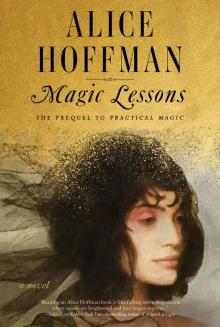 Magic Lessons
Magic Lessons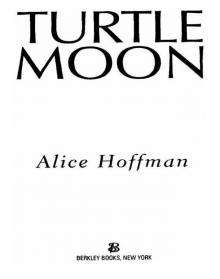 Turtle Moon
Turtle Moon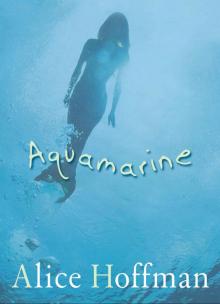 Aquamarine
Aquamarine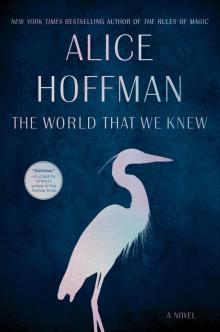 The World That We Knew
The World That We Knew Faithful
Faithful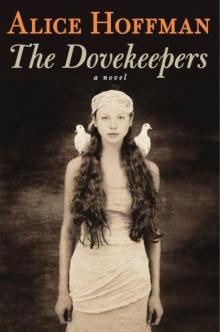 The Dovekeepers
The Dovekeepers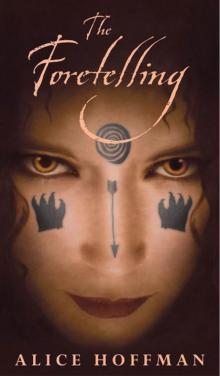 The Foretelling
The Foretelling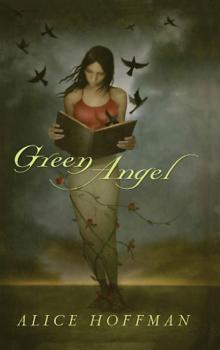 Green Angel
Green Angel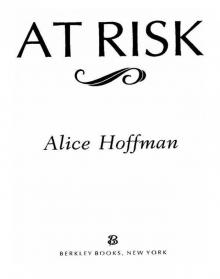 At Risk
At Risk Green Heart
Green Heart Fortune's Daughter
Fortune's Daughter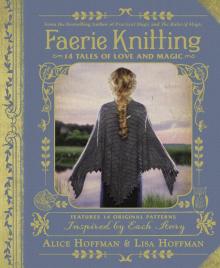 Faerie Knitting
Faerie Knitting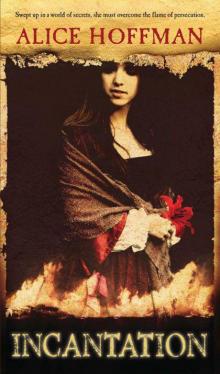 Incantation (v5)
Incantation (v5)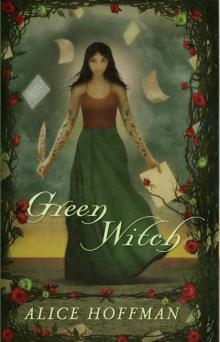 Green Witch
Green Witch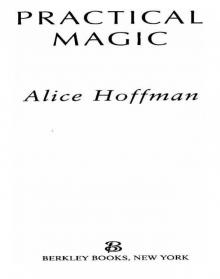 Practical Magic
Practical Magic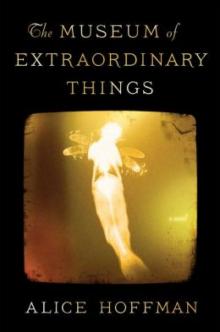 The Museum of Extraordinary Things
The Museum of Extraordinary Things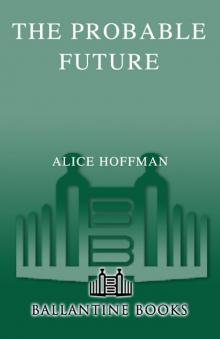 The Probable Future
The Probable Future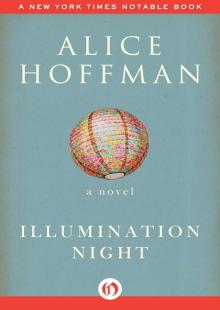 Illumination Night
Illumination Night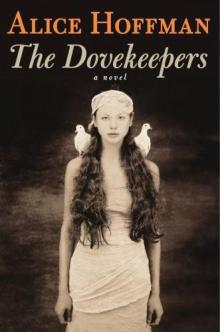 The Dovekeepers: A Novel
The Dovekeepers: A Novel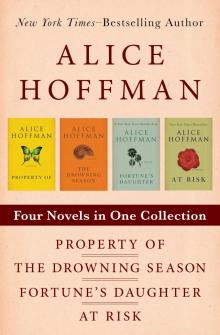 Property Of, the Drowning Season, Fortune's Daughter, and At Risk
Property Of, the Drowning Season, Fortune's Daughter, and At Risk